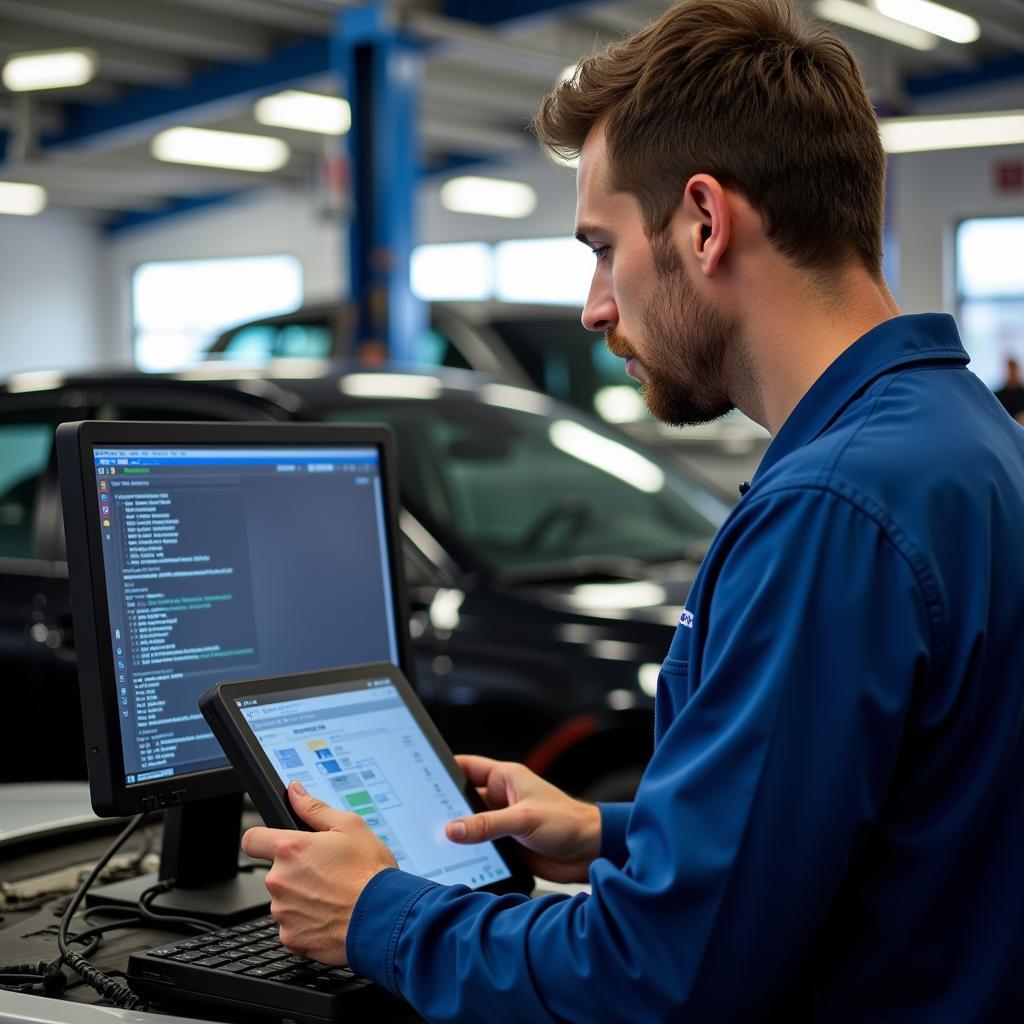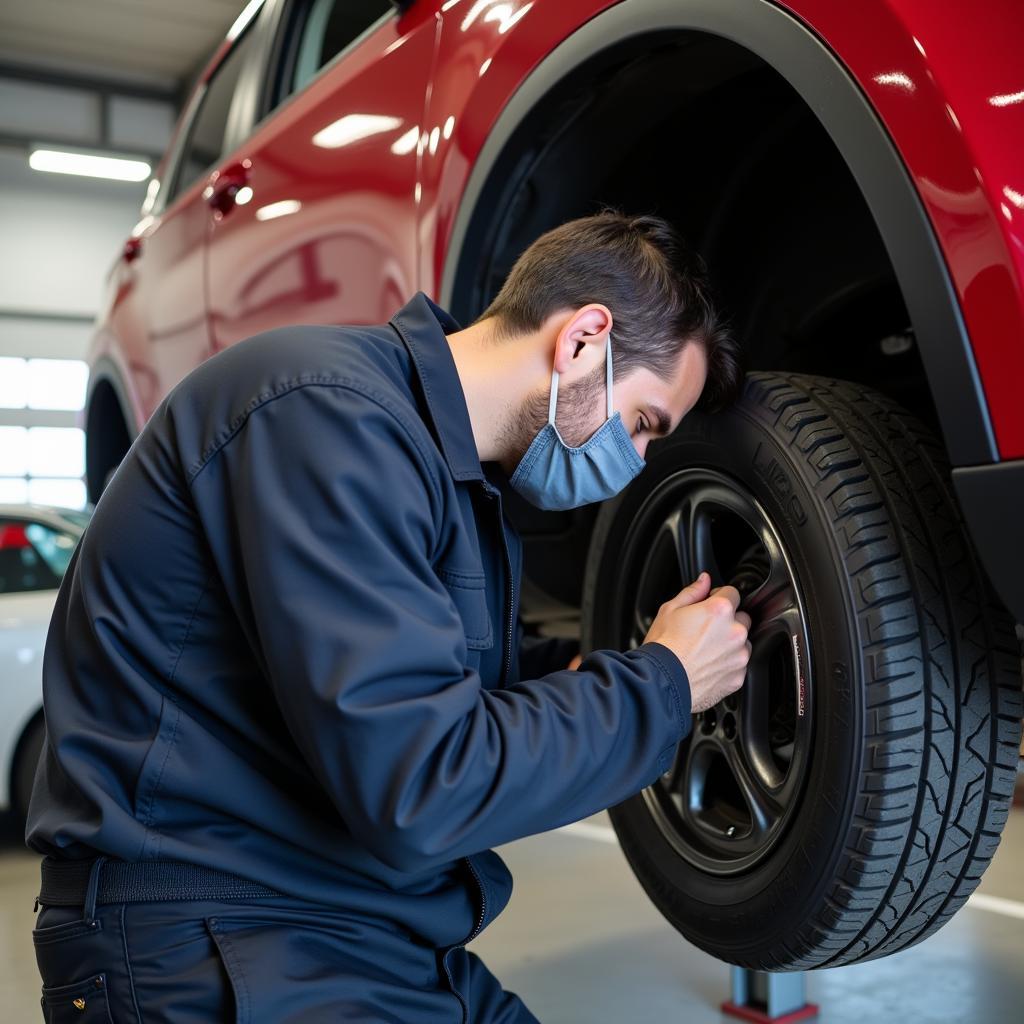What’s Included in a Full Service on a Car?
A full car service goes beyond a simple oil change. Knowing what’s included in a full service on a car helps you maintain your vehicle’s performance, reliability, and safety, while also potentially saving you money in the long run. This comprehensive guide will break down all the essential checks and procedures typically included in a full car service, empowering you to make informed decisions about your vehicle’s maintenance.
Understanding the Full Car Service
A full car service is a preventative maintenance procedure that addresses nearly every aspect of your vehicle’s health. It’s much more thorough than a basic service or interim service, offering a comprehensive inspection and maintenance of key components. This helps identify potential issues before they become major problems, ensuring your car runs smoothly and safely. What is a full car service explains the key differences between various service levels.
What Does a Full Service Cover?
A full car service typically includes the following checks and replacements:
- Engine Oil and Filter Change: Old oil is drained and replaced with fresh oil, along with a new filter, essential for lubricating the engine and preventing wear.
- Fluid Top-Ups: Brake fluid, coolant, power steering fluid, and windshield washer fluid are checked and topped up as necessary. These fluids are vital for the proper functioning of various systems.
- Brake Inspection: Brake pads, discs, and lines are checked for wear and tear. Brake fluid levels are also inspected. This ensures optimal braking performance and safety.
- Suspension Check: The suspension system, including shock absorbers, springs, and linkages, is inspected for damage or wear. This affects ride comfort and handling.
- Tire Inspection: Tire pressure, tread depth, and overall condition are checked. Proper tire maintenance is crucial for fuel efficiency and safety.
- Exhaust System Check: The exhaust system is inspected for leaks, damage, and proper functioning. This check is important for both performance and emissions.
- Battery Test: The battery’s voltage and charging system are checked to ensure they are working correctly. A failing battery can leave you stranded.
- Lights and Electrical System Check: All lights, indicators, and wipers are checked for proper operation. The electrical system is also inspected for any faults.
- Steering Check: The steering system is checked for play and responsiveness, ensuring safe and precise handling.
What’s included in full service car provides a detailed checklist you can use when taking your car for a service.
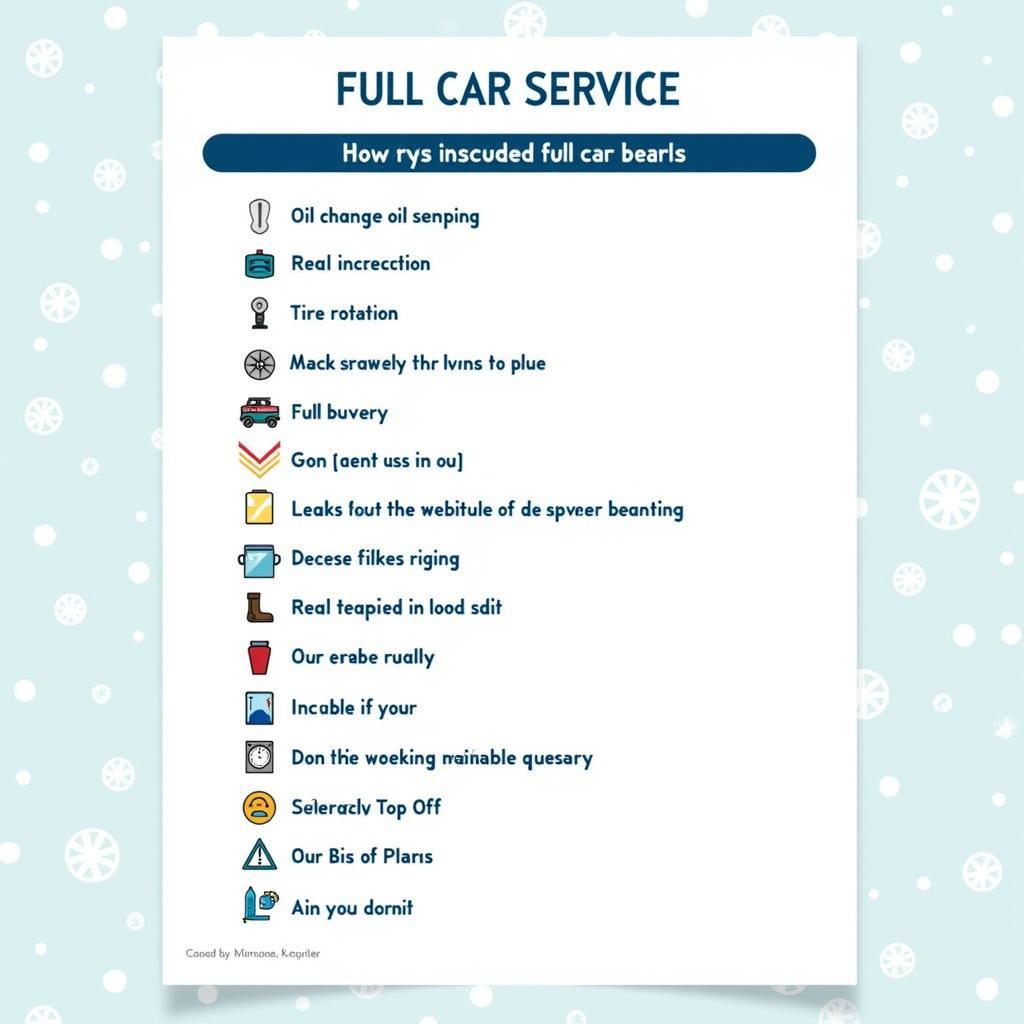 Full Car Service Checklist
Full Car Service Checklist
Why is a Full Car Service Important?
Regular full car services offer several key benefits:
- Improved Safety: Identifying potential problems early can prevent breakdowns and accidents.
- Enhanced Reliability: Regular maintenance keeps your car running smoothly and reduces the risk of unexpected repairs.
- Increased Resale Value: A well-maintained car with a full service history is more attractive to potential buyers.
- Better Fuel Efficiency: Properly maintained components, such as tires and the engine, can improve fuel economy.
- Extended Vehicle Lifespan: Regular servicing can significantly extend the life of your car.
How Often Should You Get a Full Service?
It’s generally recommended to get a full car service every 12,000 miles or 12 months, whichever comes first. However, consult your owner’s manual for specific recommendations for your make and model.
How to save money on car servicing provides helpful tips on finding affordable service options.
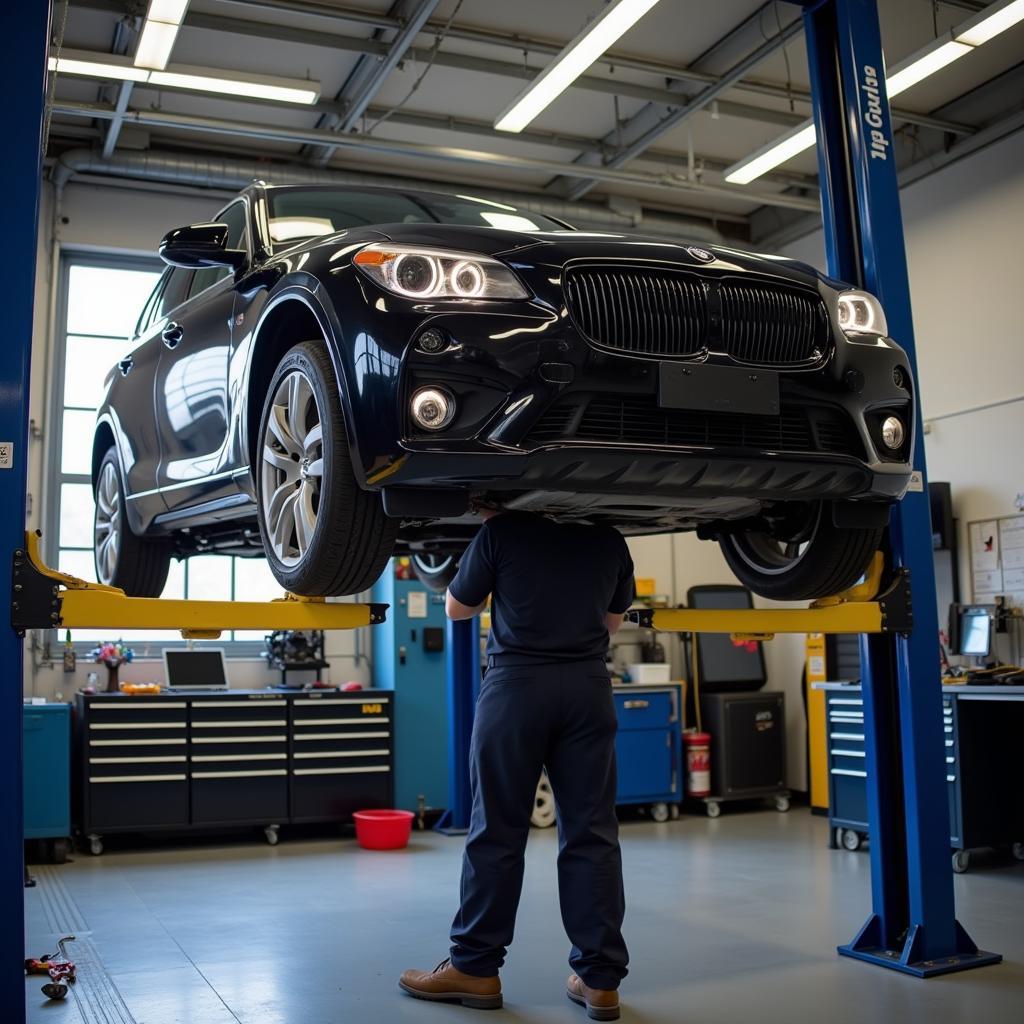 Car Being Serviced
Car Being Serviced
What to Expect During a Full Car Service
When you take your car for a full service, you can expect the mechanic to:
- Discuss your car’s history and any concerns you may have.
- Conduct a thorough inspection of all the components mentioned above.
- Provide you with a report outlining any necessary repairs or replacements.
- Obtain your approval before carrying out any work.
- Explain the work that has been done after the service is complete.
What does a routine car service include offers more insights into the routine maintenance procedures.]
“A full service is an investment in your car’s longevity and your peace of mind,” says John Smith, Senior Automotive Technician at Smith Auto Repair. “It’s the best way to keep your vehicle running safely and reliably for years to come.”
Finding a Reputable Car Service Center
When choosing a car service center, look for:
- Certifications and Accreditations: ASE certification is a good indicator of a qualified mechanic.
- Positive Reviews and Testimonials: Check online reviews and ask for recommendations from friends and family.
- Transparent Pricing: Get a clear estimate of the cost before any work is done.
- Good Communication: Choose a mechanic who is willing to explain the service process and answer your questions.
What do they do in a minor car service helps you understand the difference between a full service and a minor service.]
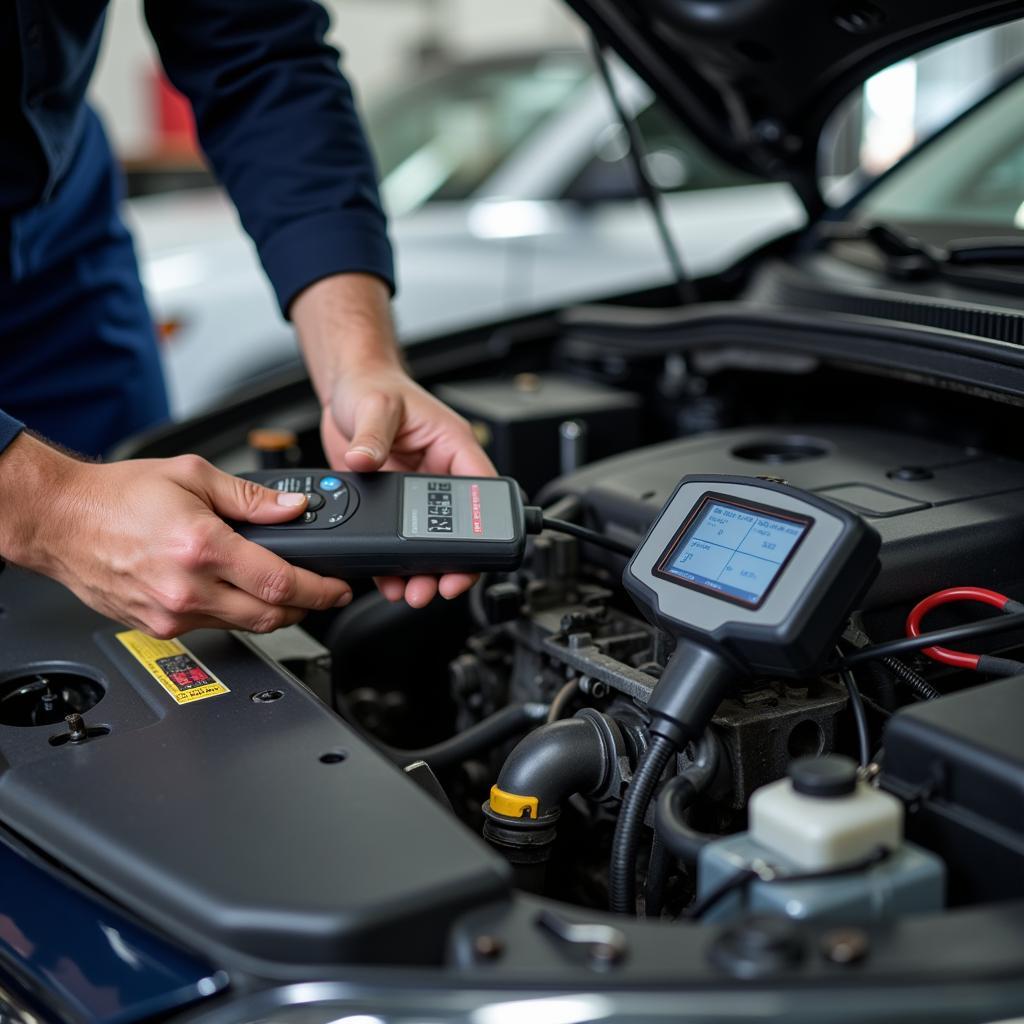 Mechanic Inspecting Engine
Mechanic Inspecting Engine
“Don’t underestimate the importance of preventative maintenance,” adds Jane Doe, Lead Mechanic at Doe’s Auto Care. “Regular servicing can save you significant money on costly repairs down the line.”
Conclusion
Understanding what’s included in a full service on a car is essential for every car owner. By investing in regular full services, you can ensure your vehicle’s safety, reliability, and longevity. Don’t wait until something goes wrong – prioritize preventative maintenance and enjoy peace of mind on the road.
FAQ
- What’s the difference between a full service and an interim service? A full service is more comprehensive than an interim service, covering more checks and replacements.
- How much does a full car service cost? The cost varies depending on the make and model of your car and the service center you choose.
- Can I perform a full service myself? While some maintenance tasks can be done at home, a full service is best left to qualified mechanics.
- What if my car needs repairs beyond what’s included in a full service? The mechanic will provide you with a report and discuss any additional repairs needed.
- How can I find a reputable car service center near me? Check online reviews, ask for recommendations, and look for certifications and accreditations.
- What is included in a major service? A major service is even more extensive than a full service, including more in-depth checks and replacements of major components.
- How often should I get my tires rotated? Tire rotation is usually recommended every 5,000-7,500 miles.
Other helpful articles:
- Full Car Service Guide
- Car Maintenance Tips
- Understanding Your Car’s Warranty
Need assistance? Contact us via WhatsApp: +1(641)206-8880, or Email: [email protected]. Our customer service team is available 24/7.
